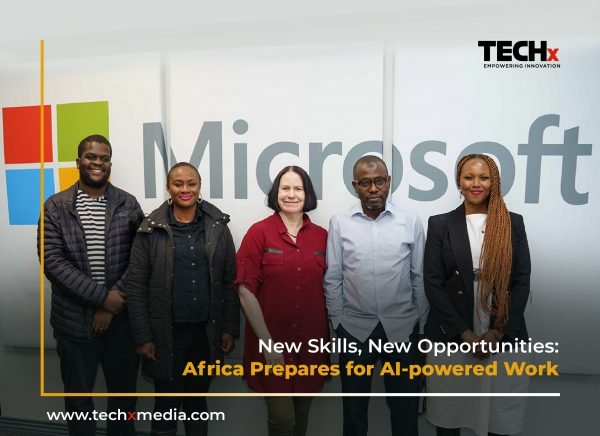23 December 2024, Mon |
1:37 AM

Africa stands at a pivotal moment, poised to shape the future of work through emerging large language models (LLMs) and innovative applications. According to the “AI and the Future of Work in Africa” whitepaper, produced by Microsoft and a collective of industry experts, this technological evolution presents unique opportunities for the continent.
Youth Workforce Potential
With nearly one billion Africans under 35, and the continent projected to house almost half of the world’s youth population by the end of the century, Africa’s young workforce will be crucial. Annually, up to 12 million young Africans enter the labor market, yet over 20% remain out of employment, education, or training, according to the International Labour Organisation.
Transforming Work Environments with Generative AI
“Generative AI can significantly transform work environments, offering the youth opportunities to create jobs, innovate, and drive economic growth across the continent,” says Ravi Bhat, Chief Technology and Solutions Officer at Microsoft Africa. The whitepaper predicts generative AI will revolutionize knowledge work, altering job types, required skills, and outputs. McKinsey research indicates generative AI could boost labor productivity by up to 0.6% annually through 2040, contingent on technology adoption rates and efficient redeployment of worker time.
Advancing Human Capabilities
Jacki O’Neill, Director at Microsoft Research Africa, notes that as internet access and affordable data spread across Africa, more individuals will gain access to GenAI tools, reducing barriers and enhancing skilling opportunities. The potential benefits of GenAI extend beyond information workers, promising transformations in agriculture, healthcare, and services, provided the youth are equipped with relevant skills.
Building a Skilled Workforce
A comprehensive skill-building approach is crucial, encompassing effective deployment and use of GenAI tools, innovative application development, and advanced research in machine learning, natural language processing, and cybersecurity. “Investing in this range of skills allows Africans to create dignified jobs, adapt AI to indigenous knowledge, and develop AI systems that reflect human-centered and community values,” adds O’Neill.
Culturally Sensitive AI Integration
With culturally and linguistically sensitive designs, GenAI can become a personalized tool that respects privacy and enhances individual skills. It can foster inclusivity, showcase diverse African talents, and support collaborative, community-focused development.
Empowering Entrepreneurs and the Informal Sector
GenAI can enhance decision-making, risk assessment, and data analysis, empowering entrepreneurs. Tailored GenAI tools for the informal sector can elevate entrepreneurs’ capabilities, offering customized support for their unique needs.
Proactive Governance and Ethical Standards
Achieving beneficial outcomes with GenAI requires proactive governance, inclusive design, educational investment, and adherence to regulatory and ethical standards. Policymakers, technologists, and citizens must collaborate to ensure responsible AI deployment and dignified AI-related labor.
Preparing for an AI-Integrated Future
“The AI revolution in Africa is not just a possibility; it is already happening. Microsoft is committed to partnering with individuals, governments, and stakeholders across the continent to prepare for a future where AI is woven into the fabric of work and society in Africa,” concludes Bhat.